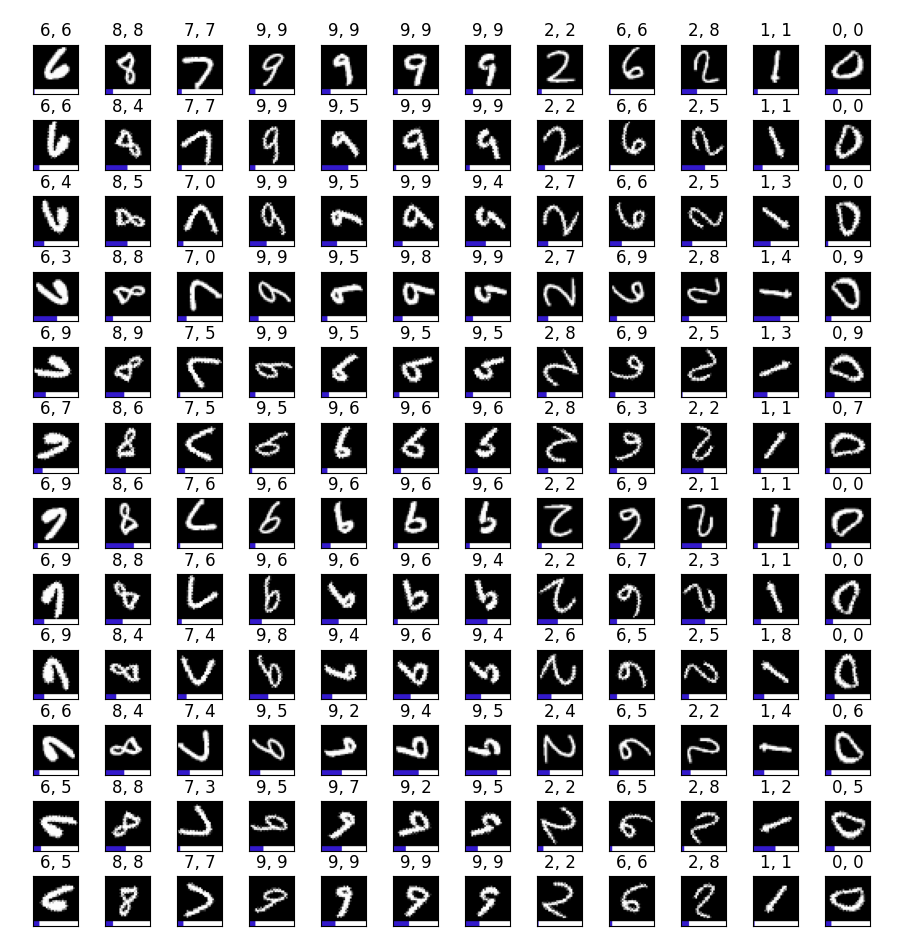BayeTorch is an experimental module for Python based on the PyTorch library. It aims at profiding a simple way to turn any -- at least the one with the layers currently supported -- PyTorch model into its Bayesian equivalent using a Bayesian by Backpropagation approach. Layers from the PyTorch library are ported to their Bayesian form -- Bayesian[ModuleName] -- using the local reparametrization trick. Some commonly used Criterions are also available such as the ELBO, minimized for classification tasks, and the Uncertainty offering epistemic and aleatoric estimations.
This work is one implementation of Shridhar et al. 2019 work.
Supported Layers:
| PyTorch Names | BayeTorch Equivalent |
|---|---|
| torch.nn.Linear | bayetorch.layers.BayesianLinear |
| torch.nn.Conv1d | bayetorch.layers.BayesianConv1D |
| torch.nn.Conv2d | bayetorch.layers.BayesianConv2D |
| torch.nn.Conv3d | bayetorch.layers.BayesianConv3D |
Model Zoo:
| Model Name | Frequentist Equivalent | BayeTorch Equivalent |
|---|---|---|
| LeNet5 | bayetorch.models.LeNet5 | bayetorch.models.BayesianLeNet5 |
| VGG11 | bayetorch.models.VGG11 | bayetorch.models.BayesianVGG11 |
| VGG13 | bayetorch.models.VGG13 | bayetorch.models.BayesianVGG13 |
| VGG16 | bayetorch.models.VGG16 | bayetorch.models.BayesianVGG16 |
| VGG19 | bayetorch.models.VGG19 | bayetorch.models.BayesianVGG19 |
Metrics:
| Metric Name | BayeTorch Equivalent |
|---|---|
| ELBO | bayetorch.metrics.ELBO |
| Uncertainty | bayetorch.metrics.Uncertainty |
The BayeTorch module can be installed using the following command (may require sudo):
$ (sudo) python3 setup.py installIf you want to use the BayeTorch module without installation, you need at least to install all the modules required for its use (may require sudo):
$ (sudo) pip3 install -r requirements.txtAll the test can run using the PyTest module installed with the requirements:
$ pytest -v .If your computer/machine is not able to run all the test due to memory consumption, you can run them individually with the same command specifying the test you want to run.
$ pytest -v tests/[TestFile].pyBenchmarks are available via the benchmarks folder ans can be run with (requires cuda enable GPU with cuda and cudnn installed):
$ python3 -m benchmarks [-h] --model MODEL --epochs EPOCHS [EPOCHS ...]\
--batch_size BATCH_SIZE [--n_workers N_WORKERS] --lr LR [LR ...]\
[--samples SAMPLES] --task TASK [--freeze]- Task: acc, init, uncert
- Epochs: give 1 for acc and uncert, 2 for init
- Lr: give 2 for acc and init, 1 for uncert
Benchmarks available (Accurcy reported from validation)
| Model | Name | Dataset | Frequentist Accuracy | Bayesian Accuracy | Frequentist Size | Bayesian Size |
|---|---|---|---|---|---|---|
| LeNet5 | LeNet | MNIST | 98.75% | 98.43% | 338.9kB | 676.1kB |
| VGG11 | VGG11 | CIFAR10 | 82.99% | 63.96% | 72.39Mb | 144.8Mb |
| VGG16 | VGG16 | CIFAR10 | 86.56% | 75.81% | 114.3Mb | 228.6Mb |
| Model | Name | Dataset | Epochs | Learning Rate* | Batch Size |
|---|---|---|---|---|---|
| LeNet5 | LeNet | MNIST | 10 | 1e-2/1e-3 | 256 |
| VGG11 | VGG11 | CIFAR10 | 50 | 1e-3/1e-4 | 256 |
| VGG16 | VGG16 | CIFAR10 | 100 | 1e-3/1e-4 | 256 |
* Learning rate is different for frequentist and bayesian f_lr/b_lr. Bayesian version seems to work better with smaller learning rates.
No efforts have been put in achieving best performances on the tasks presented in this benchmark. This benchmark is present to offer a basic overview comparing frequentist to bayesian version of common models. Obviously one could tune the models using Hyperparameter Scheduling, Dropout, Batch Normalization, Regularization, ... etc, to improve the performances.
This benchmark shows if their is any benefit benefit from preinitializing a bayesian model with its pretrained frequentist counterpart.
| Model | Name | Dataset | Pretrained Accuracy | Starting Accuracy | Final Accuracy | Freezed |
|---|---|---|---|---|---|---|
| LeNet5 | LeNet | MNIST | 98.40% | 86.09% | 98.97% | False |
| LeNet5 | LeNet | MNIST | 98.40% | 55.42% | 63.09% | True |
| VGG11 | VGG11 | CIFAR10 | 74.18% | 10.00% | 10.00% | False |
| VGG11 | VGG11 | CIFAR10 | 74.18% | 10.00% | 69.50% | True |
| VGG16 | VGG16 | CIFAR10 | 76.04% | 10.00% | 10.00% | False |
| VGG16 | VGG16 | CIFAR10 | 76.04% | 10.00% | 65.16% | True |
| Model | Name | Dataset | Epochs | Learning Rate | Batch Size | Freezed |
|---|---|---|---|---|---|---|
| LeNet5 | LeNet | MNIST | 3 | 1e-3 | 256 | False |
| LeNet5 | LeNet | MNIST | 3 | 1e-3 | 256 | True |
| VGG11 | VGG11 | CIFAR10 | 50 | 1e-4 | 256 | False |
| VGG11 | VGG11 | CIFAR10 | 50 | 1e-4 | 256 | True |
| VGG16 | VGG16 | CIFAR10 | 100 | 1e-4 | 256 | False |
| VGG16 | VGG16 | CIFAR10 | 100 | 1e-4 | 256 | True |
- Pretrained descirbe the pretrained Frequentists model
- Starting descirbe the Bayesian model initialized with the Pretrained model without before training
- Final descirbe the Bayesian model initialized with the Pretrained model without after training
- Freeze describe if the pretrained weights are frozen or not
Both Epsitemic and Aleatoric uncertainty can be retrieved through the use of the Uncertainty metric. The implementation followes the original implementatio ndescribe in the paper from Shridhar et al. 2019. As the following figure shows, the epsitemic uncertainty seems to increase when the picture are rotated and the model gets the prediction wrong. The figure show MNIST images rotated from 0 to 360 degrees with their assiociated epistemic uncertainty in blue (rescaled by a factor of 100) with a sample size of 15 and BaysianLeNet5. Label and model predictions are shown above the corresonding image in the form label, prediction.
Concerning the aleatoric uncertainty, its value only seems to change when modifying the dataset or the augmentation pipleine.
- Shridhar et al. 2019: Uncertainty Estimations by Softplus normalization in Bayesian Convolutional Neural Networks with Variational Inference (Github)




